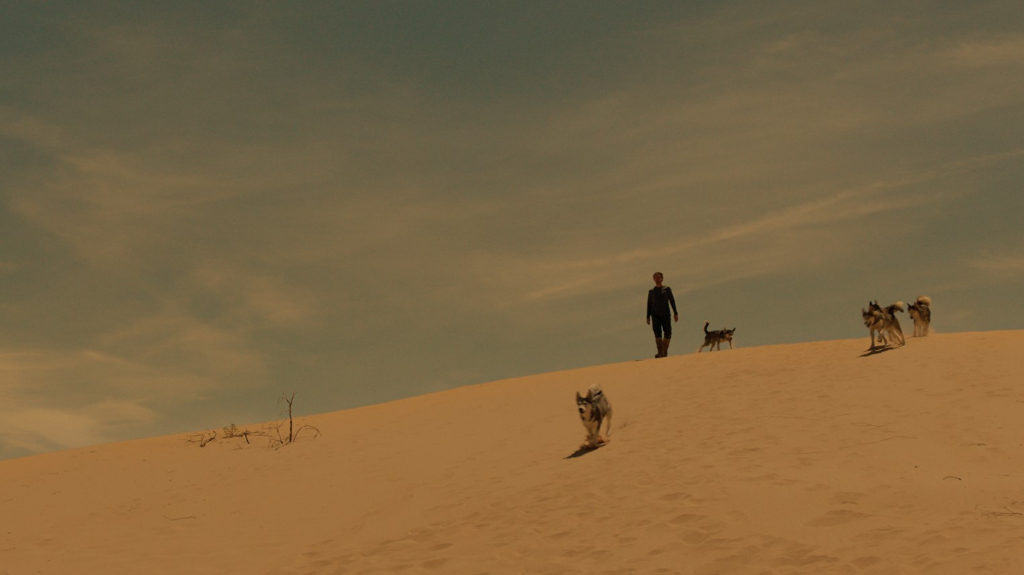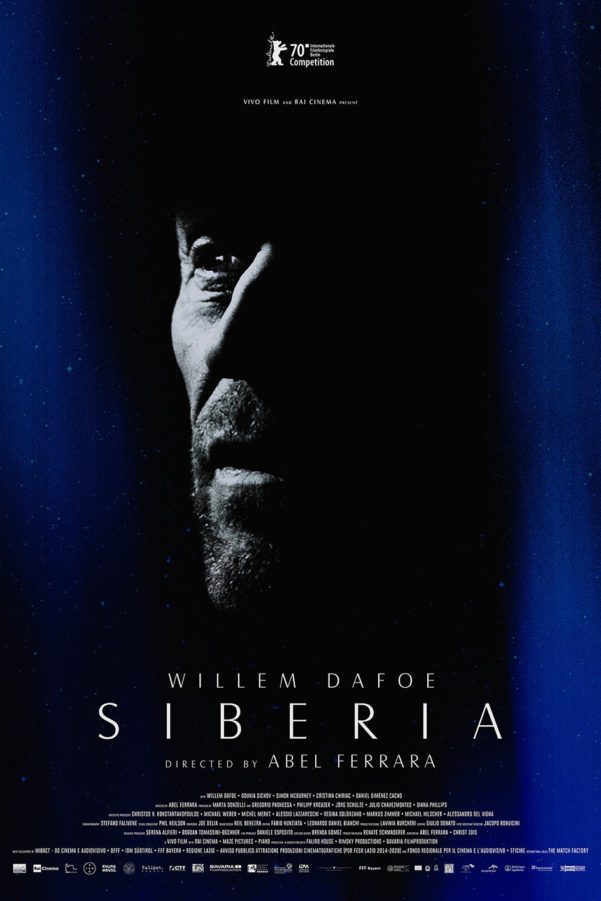Siberia

Abel Ferrara does his own thing, it seems. Other Berlinale competition efforts have paid credence to narrative convention, affective characterisation, refined cinematic sensibility and good taste. Siberia offers up juddering temporal shifts, discontinuous imagery and decontextualised sequences that contain sporadic provocations. All of this is in service of the quasi-psychoanalytical cinematic method, which here produces a discourteous filmic appreciation of the dream logic of Carl Jung. There’s a blind, likeable conviction to this apparently preposterous work.
Willem Dafoe gamely plays Clint, the lightning rod for Ferrara’s deep dive into the ego and the id. In the self-abandonment of Siberia (see: the icy tundra of the mind), this regular man explores the alcoves of his memory, the veiled mezzanine of lost desires. He encounters figures of the past that haunt his present. His recurrent visions variously comprise ex-lovers, affronted natives and wronged acquaintances, all of whom are given amusingly overwrought dialogue that always manages to circle back to a metaphysical discovery of truth. There are a lot of laughs.
Dafoe also plays Clint’s phantasmal father, a surgeon with hokey middle-American manners and intonation. His mother appears too, a figure of tender sexual affection which ably rounds out the Oedipal oval. These provide some of the most hilariously pat scenes, as the cave of recriminations morphs into a vaudeville show of supposed misfits and grotesques. That moment prompted the most walkouts. This critic finds himself more kindly disposed towards Ferrara’s comic tango with offence, which doesn’t seem to have the same self-seriousness or misguided intellectual pretence as that of filmmakers such as Lars von Trier.
There are many expected shifts between light and dark colour palettes: from black hovels to pristine snowscapes, or from dank, subterranean pits to glossy, Edenic pastorals. These switches maintain a level of visual interest among the concerted discussions wrought from the major works of early 20th-century psychology. One particularly euphoric transition has Del Shannon’s Runaway soundtrack a dance of children around a maypole, because why not? It’s one of the few films in which a dead fish speaking in Hebrew makes a modicum of sense. Just leave your pieties at the door.
Joseph Owen
Siberia does not have a UK release date yet.
Read more reviews from our Berlin Film Festival 2020 coverage here.
For further information about the event visit the Berlin Film Festival website here.
Watch the trailer for Siberia here:


























Facebook
Twitter
Instagram
YouTube
RSS